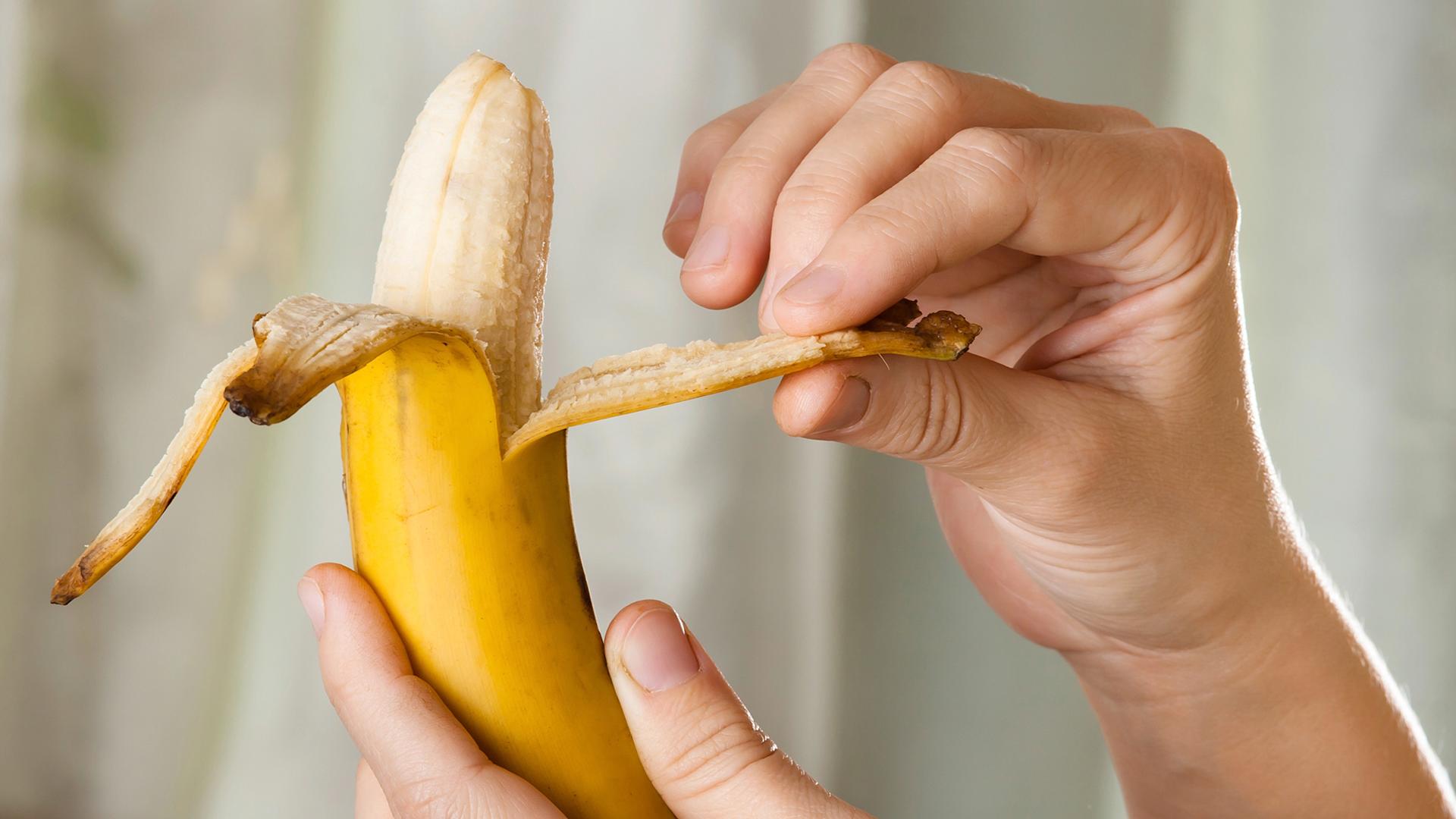
Food waste
Saving food and helping people
A visit to "Tischlein deck dich": members of the FMC Executive Board support the team on site.
navigation

Sustainability
Bananas shouldn’t be peeled from the stem. We explain why – and debunk other banana-related myths.
Correct. It’s much more convenient to peel the banana upside down – in other words, not where the neck is. This prevents it from being squeezed and keeps the strings attached to the peel. In addition, you can conveniently hold the banana by the neck. That’s how monkeys do it, by the way. Give it a try!
Correct. The banana peel has dirt and microbes that you could transfer to the fruit if you touch the peel first and then the flesh. The same applies if you cut through the peel with a knife and then through the inside. So always rinse the banana thoroughly with water first. This does not completely remove all germs, but at least most of the microbes.
Wrong. When your muscles are sore, it means there are small tears in the muscle fibres caused by intense stress on the muscles. To remedy that, you need to get the blood pumping: sauna or steam bath, a hot bath or light exercise. Bananas are a source of potassium and magnesium. These two minerals ensure normal muscle function, but they do not prevent or alleviate the pain of muscle strain.
Wrong, at least not necessarily. In addition to organic and Demeter bananas, Migros carries the popular WWF banana. The fruit is grown on 14 farms in Colombia and Ecuador in cooperation with the environmental protection organisation WWF. The goal is to make bananas from conventional cultivation more sustainable and socially agreeable. In other words, less fertiliser and fewer pesticides to protect the climate, soil and water; up to 80% less water consumption; fixed employment contracts, insurance and training for all employees; construction of waste management systems. Among other things, all these measures lead to the re-establishment of native plants and animals – e.g. sloths, panthers, snakes and frogs – in the areas around the plantations.
Correct. All fruit contains sugar, which is transformed into alcohol as it ripens. The sugar content increases as the fruit continues ripening, so all ripe fruit contains a small amount of alcohol. In the case of a very ripe banana, this corresponds to the content of a non-alcoholic beer at 0.6% by volume and is thus so low that even children can enjoy a banana shake made from the overripe fruit without worrying.
Wrong. There is no proof that bananas clog the intestines. Bananas provide 2.6 grams of fibre per 100 grams, an important nutrient that supports normal digestion.
Sustainability is part of our culture and we still have plenty more on our agenda. Learn more about it in our Stories!